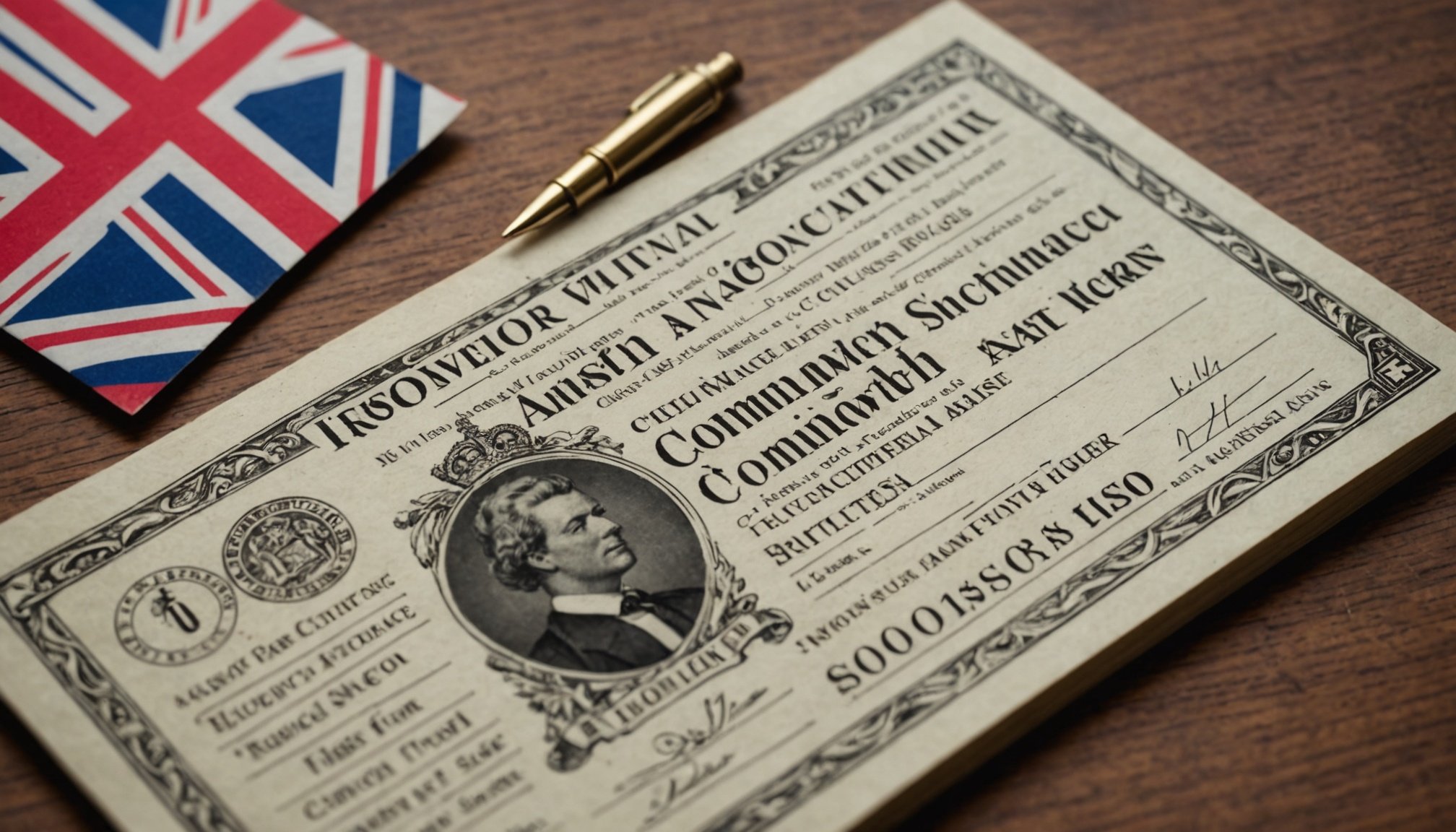Securing a UK Ancestry Visa can unlock a world of opportunities for Commonwealth citizens with British roots. This step-by-step guide simplifies the process, ensuring you understand the necessary documentation, eligibility criteria, and application procedures. Whether you’re reconnecting with your heritage or seeking new adventures, this resource provides insightful tips and practical advice to help you successfully navigate your journey to the UK. Prepare to take the first steps towards exploring your heritage and embracing new possibilities.
Overview of the UK Ancestry Visa
The UK Ancestry Visa serves as a unique gateway for Commonwealth Citizens with British Roots to live and work in the UK. This visa is specifically designed for those who can prove their British ancestry, offering a streamlined route to employment and residence. It acknowledges the historical connections between the UK and Commonwealth nations, providing a practical solution for individuals seeking to reconnect with their heritage.
Lire également : Enhancing Digital Safety: UK Schools’ Innovative Cybersecurity Strategies in 2023
For Commonwealth citizens, the UK Ancestry Visa is of significant importance. It not only facilitates entry into the UK but also grants the right to work without restrictions, which is a substantial advantage compared to other visa types. This opportunity is particularly beneficial for those aiming to establish a long-term presence in the UK, as it can lead to permanent residency and eventually citizenship.
The benefits of the UK Ancestry Visa extend beyond employment. Holders can enjoy access to public services and are eligible to bring family members, enhancing their quality of life. The visa's flexibility allows individuals to explore various career paths, contributing to the UK's economy and cultural diversity. Overall, the UK Ancestry Visa offers a comprehensive package for those with British roots, making it a valuable asset for eligible Commonwealth citizens.
Dans le meme genre : Navigating Your Options: Contesting a Speeding Ticket in London”s Low Emission Zone
Eligibility Criteria
Understanding the eligibility criteria for the UK Ancestry Visa is crucial for applicants. To qualify, individuals must meet several Commonwealth requirements. Firstly, applicants need to be at least 17 years old at the time of application. This age requirement ensures that individuals are capable of independent living and employment in the UK.
Nationality plays a pivotal role as well. Applicants must be citizens of a Commonwealth country. This aligns with the visa's intention to strengthen ties with nations historically connected to the UK.
Ancestry documentation is another critical component. Applicants must provide proof of their British ancestry, which typically involves demonstrating that at least one grandparent was born in the UK. This can be established through birth certificates or other official records that trace lineage back to a British ancestor.
Financial considerations are also significant. Applicants must show they can support themselves financially without needing public funds. This involves providing evidence of sufficient savings or a job offer in the UK.
Lastly, relationship considerations may apply if applicants wish to bring family members. They must prove the familial relationship and ensure financial capability to support them. Understanding these criteria thoroughly can streamline the application process and enhance the chances of a successful visa grant.
Required Documentation
Navigating the Ancestry Visa Documents is pivotal for a successful application. Ensuring you have all the necessary Supporting Evidence can significantly enhance your chances of approval. The application process requires several key documents to be submitted.
First and foremost, proof of British ancestry is essential. This typically involves birth certificates or marriage certificates tracing your lineage back to a grandparent born in the UK. It's crucial that these documents are accurate and clearly demonstrate your connection.
In addition to ancestry proof, applicants must provide a valid passport from a Commonwealth country. This serves as confirmation of your nationality, aligning with the visa's eligibility criteria.
Financial documentation is also required. You must demonstrate the ability to support yourself without recourse to public funds. This can be evidenced through bank statements or a job offer in the UK.
Finally, if you plan to bring family members, you must include documents proving your relationship, such as marriage or birth certificates. Ensuring these documents are comprehensive and precise is essential.
The importance of accurate and thorough documentation cannot be overstated. It forms the backbone of your application, and any discrepancies or omissions can lead to delays or rejections.
Application Process
Embarking on the Ancestry Visa Application journey involves a structured Step-by-Step Process. Initially, applicants must choose between an online application or a traditional paper application. The online method is generally preferred for its efficiency and user-friendly interface. It allows applicants to fill out forms and upload necessary documents digitally, streamlining the process.
Once you decide on the application method, the next step involves gathering and submitting all required documents, as previously outlined. Ensuring accuracy and completeness in this stage is crucial to avoid delays.
After submission, the Visa Submission phase begins. It is important to note that processing times can vary. Typically, applicants can expect a decision within three months. However, this may extend if additional information or an interview is required. Interviews are not always mandatory but may be requested to verify details or clarify any ambiguities in the application.
Being prepared for potential interviews involves understanding the visa criteria thoroughly and having all supporting documents readily available. This proactive approach can significantly enhance the likelihood of a successful application. By following this structured process, applicants can navigate the Ancestry Visa application with confidence and precision.
Tips for a Successful Application
Embarking on a successful visa application journey requires attention to detail and strategic planning. Providing detailed information is crucial; inaccuracies can lead to delays or rejections. Ensure that every piece of information is precise and aligns with the documentation submitted.
Application tips focus on presenting your case effectively. Start by organising your documents logically, ensuring they are easily accessible during the review process. Highlight key details that demonstrate your eligibility, such as financial stability and ancestry proof. Providing a clear narrative of your intentions and plans in the UK can strengthen your application.
Avoid common mistakes by double-checking all entries for errors or omissions. Simple oversights, like incorrect dates or mismatched names, can complicate the process. Ensure all documents are up-to-date and certified if required. Remember, consistency across all forms and documents is essential.
To further enhance your application, consider including a cover letter. This can succinctly outline your qualifications and intentions, providing a personal touch to your submission. By following these tips, you can navigate the application process with confidence, minimising the risk of common pitfalls and increasing your chances of a successful outcome.
Visual Aids and Resources
Navigating the UK Ancestry Visa process can be complex, but Ancestry Visa Resources are available to guide applicants. Visual Guides such as flowcharts and checklists can simplify the application steps, offering a clear visual representation of what needs to be done at each stage. These tools can significantly aid in ensuring that no steps are overlooked, providing a structured approach to the application process.
For those seeking additional Application Support, official resources and government guidelines are indispensable. These documents offer authoritative information on eligibility criteria, required documentation, and processing times. Accessing these resources ensures applicants are well-informed and prepared.
Additionally, recommended third-party services can provide further assistance. These services offer expert advice and support, helping applicants with document preparation and submission. They can also provide insights into common pitfalls and how to avoid them, enhancing the chances of a successful application.
By utilising these Ancestry Visa Resources, applicants can approach the process with confidence. Whether through visual aids or professional support, these resources play a crucial role in simplifying the journey towards obtaining a UK Ancestry Visa.
Frequently Asked Questions (FAQs)
Navigating the Ancestry Visa FAQs can clarify many common queries applicants have. Below, we address some prevalent concerns and misconceptions to provide comprehensive visa application guidance.
Addressing Common Concerns
How long can I stay on a UK Ancestry Visa?
Initially, the visa allows a stay of up to five years. After this period, you may apply for an extension or seek permanent residency, contingent on meeting specific criteria.
Can my family members join me?
Yes, dependent family members can accompany you. This includes your spouse, partner, and children under 18. Each dependent must apply separately, and you must demonstrate the financial means to support them.
Clarifying Misconceptions
Is it possible to renew the visa?
Yes, renewal is possible. You can apply for an extension before your current visa expires. Continuous residence and employment in the UK are vital for a successful renewal.
Additional Information
For those with further common queries, official government resources and professional advice are recommended. They provide detailed visa application guidance, ensuring all requirements are met and increasing the likelihood of a successful application.
Conclusion and Next Steps
After submitting your Ancestry Visa application, there are critical steps to ensure a smooth Application Follow-Up. Begin by confirming receipt of your application through the official channels. This acknowledgment is essential to track your progress and address any issues promptly.
Tracking Application Status
Utilise available resources for tracking application status. The UK government provides online tools where you can monitor the progress of your application. These platforms offer real-time updates, helping you stay informed about any required actions or documents.
Future Considerations for Visa Holders
Once your visa is granted, consider the long-term implications. The Ancestry Visa offers a pathway to permanent residency, provided you meet certain conditions, such as continuous employment and residence in the UK. Regularly review your status and ensure compliance with visa conditions to maintain eligibility for future extensions or residency.
Additional Resources
For detailed guidance, consult official resources or seek professional advice. These can provide insights into maintaining your visa status and exploring residency options. By staying proactive and informed, you can make the most of your Ancestry Visa and plan effectively for your future in the UK.











